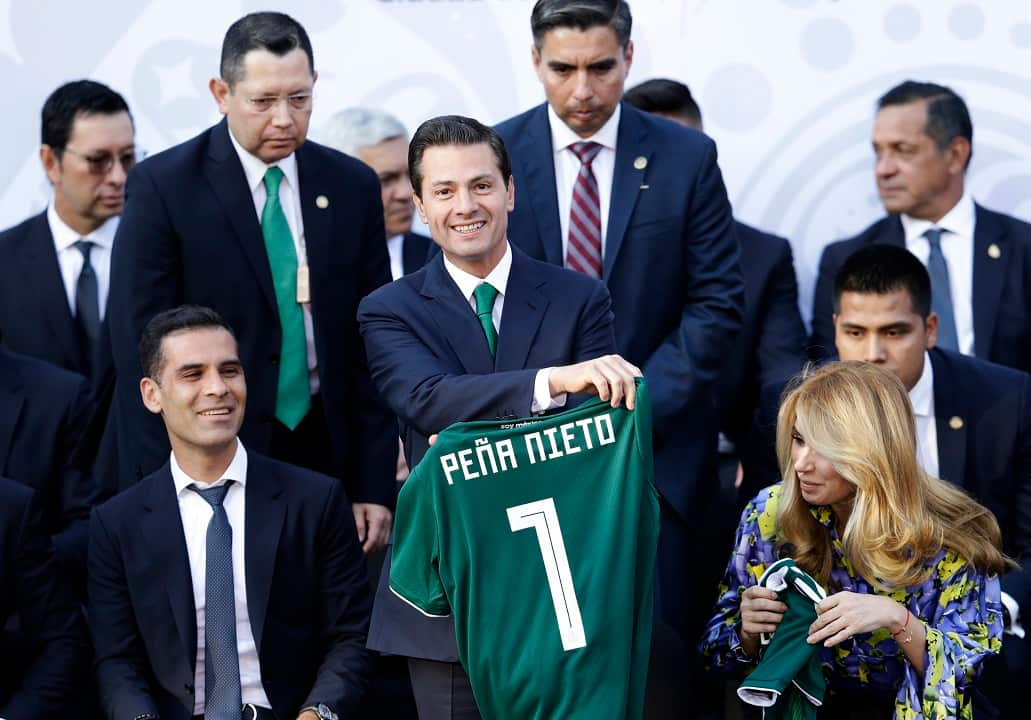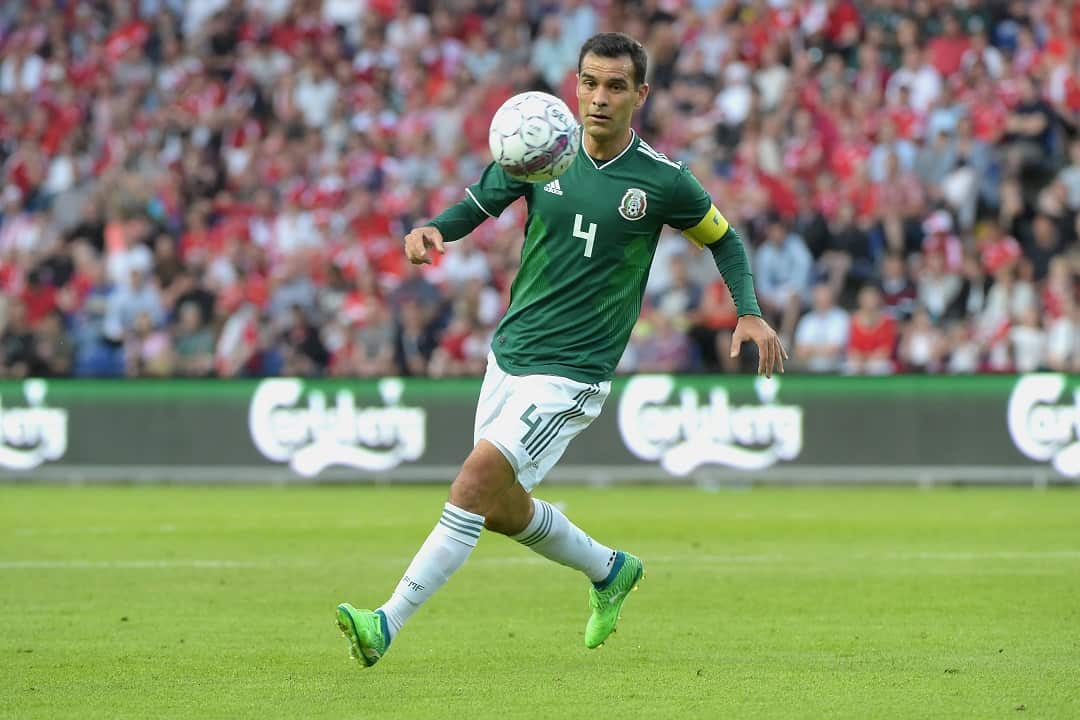Rafael Márquez, one of the best-known stars on Mexico’s World Cup soccer team, is a standout of the tournament in Russia. But it has nothing to do with his prowess on the field.
Márquez, 39, is on a US Treasury Department blacklist of people it says have helped launder money for drug cartels. His inclusion on the list prohibits American individuals, businesses and banks from having anything to do with him. So Márquez does not drink from the same branded water bottles as his teammates or wear the same uniform at practices. Instead of being planted in front of sponsors’ logos at every opportunity, as is normally the case for prominent players, “Rafa,” as he is known, is kept away.
So Márquez does not drink from the same branded water bottles as his teammates or wear the same uniform at practices. Instead of being planted in front of sponsors’ logos at every opportunity, as is normally the case for prominent players, “Rafa,” as he is known, is kept away.

Mexican President Enrique Pena Nieto holds up a Mexican national soccer team jersey given to him by team captain Rafael Marquez, left. Source: AAP
If he is the best player in a game, he most assuredly will not be named the Budweiser Man of the Match. His lodging is carefully scrutinised to prevent him from staying in places that have any American connections, even if it means getting him a room away from the team. And however hard he works on the field, Márquez has agreed to not get paid.
It might get complicated for the banks, after all.
FIFA, world soccer’s governing body and organiser of the World Cup, routed Mexico’s portion of the $1.5 million it sent to each team to prepare for the tournament in euros via banks unconnected with the US financial system.
Corporate sponsors, particularly American ones, that pay to have their brand names splayed all over the World Cup and on its stars are running as far from Márquez as possible.
Márquez, who has been on the Treasury blacklist since August, and several businesses connected to him are accused of acting as fronts and holding assets for Raúl Flores Hernández, who is suspected of leading a drug trafficking organisation.
Though he has not been criminally charged, Márquez’s financial assets in the United States, as well as his Mexican assets with ties to the American financial network, were frozen.
He has vehemently denied any link to drug traffickers and has hired a team of lawyers to challenge his placement on the list and assuage fretful sponsors.
Márquez does not drink from the same branded water bottles as his teammates or wear the same uniform.
One of his lawyers, Jose Luis Nassar, who has acted as a spokesman, has said “we are in a frank phase of collaboration” with US officials to resolve the matter.
But sponsors are treating the superstar like kryptonite just the same.
The Mexican soccer federation and FIFA have known about Márquez’s peculiar situation for months but allowed him to be named to the team and come to the tournament.
Both bodies, in fact, have worked together to navigate his course at the tournament in a way that will avoid any trouble from the Treasury Department, according to several people involved in the planning who spoke on condition of anonymity. “FIFA is aware of the situation concerning the player Rafael Márquez and we are in regular contact with the Mexican Football Association,” the governing body said in a statement.
“FIFA is aware of the situation concerning the player Rafael Márquez and we are in regular contact with the Mexican Football Association,” the governing body said in a statement.

Denmark v Mexico - International Friendly Source: Getty Images
The Mexican federation, in its own statement, acknowledged that it has had to make accommodations for Márquez, who is team captain.
“We take seriously the actions of the US Treasury Department, and we have structured our World Cup operations so as not to violate U.S. sanctions laws,” said the federation, which has significant business interests in the United States, notably with its exclusive commercial rights partner, Soccer United Marketing.
Soccer United Marketing declined to comment.
Having Márquez along in Russia may complicate Mexico’s World Cup bid, but his presence already has been a positive for the team.
As a late substitute to help close out Mexico’s upset of Germany on Sunday, Márquez became only the third player to appear in a fifth World Cup. The achievement might have been cause for celebration and promotions had it come under different circumstances.
After the game, broadcasters did not rush Márquez for an on-field interview. That would have meant placing him in front of a clear plastic board covered in sponsor logos, including four major US brands: Visa, Coca-Cola, Budweiser and McDonald’s.
FIFA initially, and erroneously, told broadcasters they could not even interview Márquez, before revising that advice to say that they could, provided they did so without displaying sponsor logos.
FIFA also has taken measures to pre-empt contact between Márquez and any of its employees who are U.S. citizens. For instance, if Márquez appears at a news conference that FIFA arranges, the moderator should not be an American.
Share


